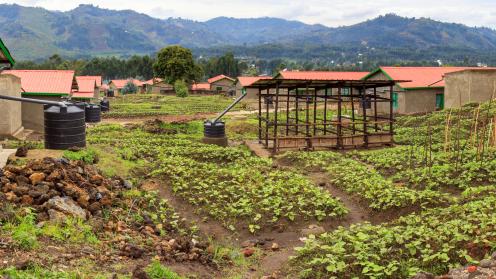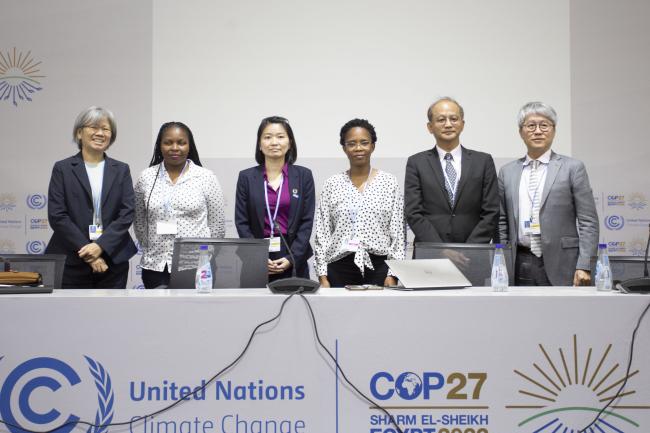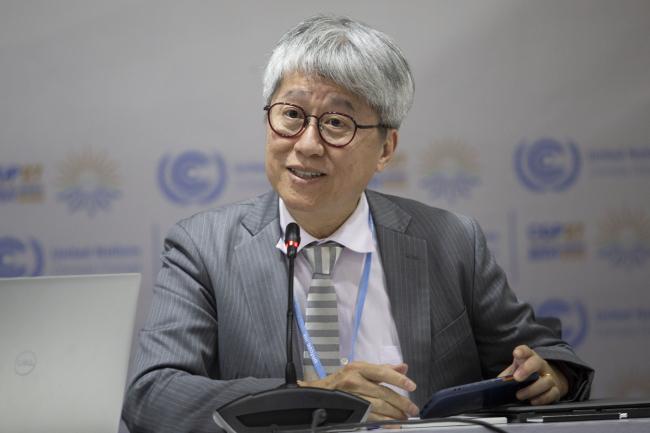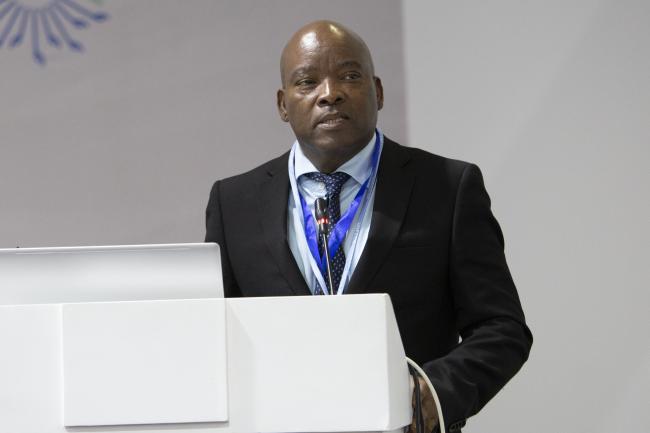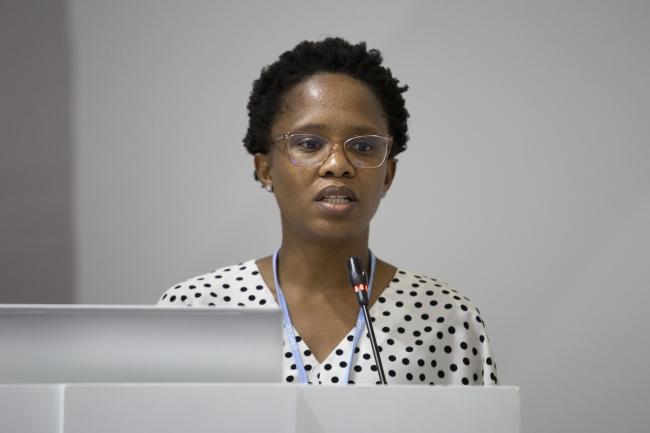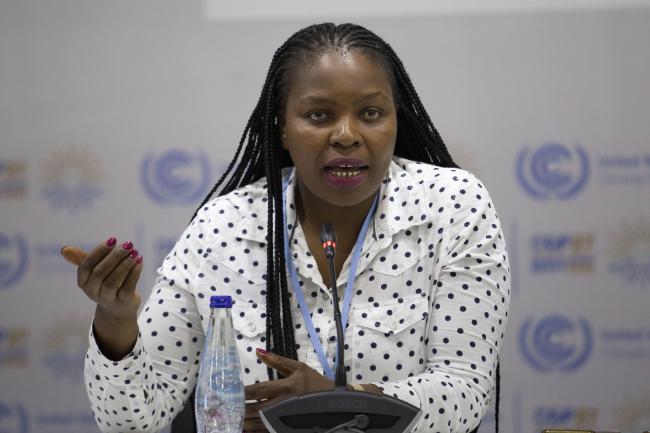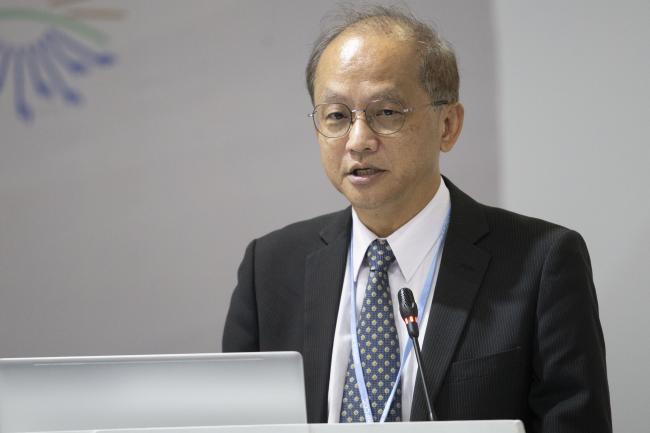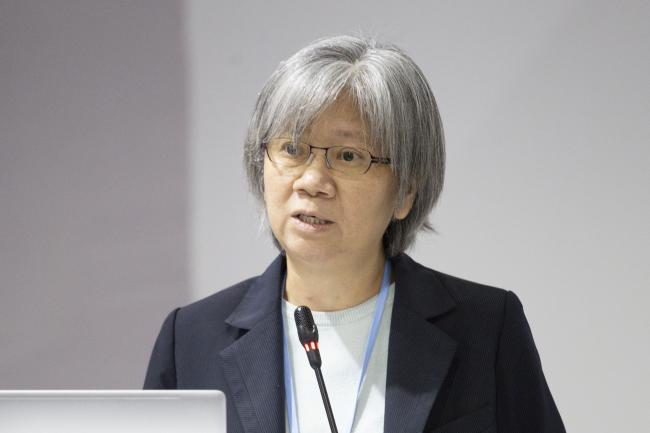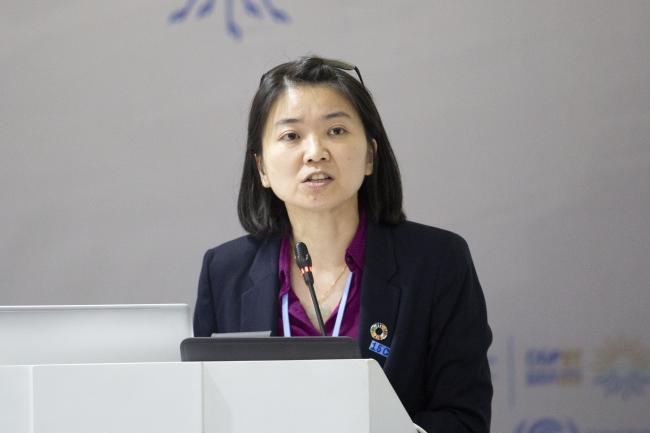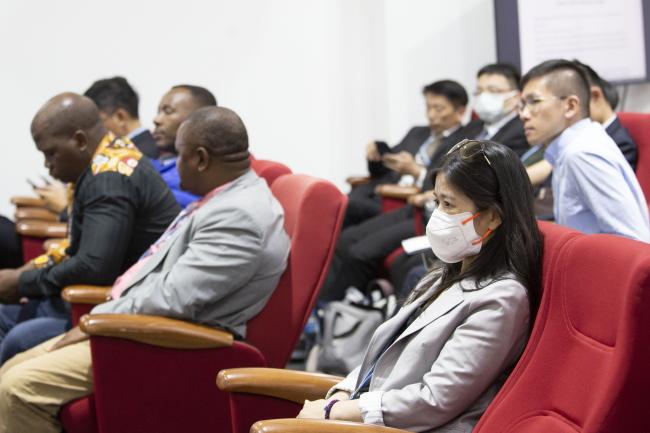About
Panelists of a COP 27 side event explored how pursuing the net zero goal will involve significant transformation of energy systems, product manufacturing, and business models, as well as embracing green energy technology
Building a resilient and sustainable society requires innovative ideas, creative thinking, and collaboration between governments and civil society. This event explored: decarbonization solutions; technological strategies in mitigation and adaptation; and collaborative approaches for developing countries, particularly Eswatini, in contributing to a climate-resilient and low-carbon economy.
Demand-driven technological strategies in mitigation and adaptation will contribute to climate-resilient and low-carbon development. This event aims to explore decarbonization solutions to integrate net-zero and resilience in a collaborative approach for developing countries.
The event was moderated by Chien-Te Fan, National Tsing Hua University. In his welcome remarks, Moses Vilakati, Minister of Tourism and Environmental Affairs, Eswatini, shared that Eswatini is at COP 27 to exchange ideas with other countries on how they can reach net zero and build a more resilient economy. Over the past few years, Eswatini has been heavily affected by hurricanes, cyclones, and droughts, making the issue of reaching net zero a critical part of their Nationally Determined Contributions (NDCs), he added. The important step is to come together as partners and discuss ideas together, he concluded.
In her opening remarks, Duduzile Nhlengethwa Masina, Director, Department of Meteorology, Eswatini, discussed the country’s commitment to its NDCs, which focuses on adaptation and mitigation strategies in different areas such as in agriculture, forestry, biodiversity, health, transport, gender, among others. Some of these strategies include: the development of nature-based solutions; capacity building; and the integration of emission reductions in different systems. She emphasized the importance of looking at its emissions from the perspective of the energy sector and of focusing on initiatives in the agriculture sector, noting they want to learn best practices from other countries.
Khetsiwe Khumalo, Ministry of Tourism and Environmental Affairs, Eswatini, said it was essential to educate the youth on climate change issues, as well as engage and empower them to come up with creative solutions because they will be the ones most affected. She noted that the world needs to look for “transformative solutions,” pointing out that innovative technology, financing instruments, and public-private partnerships can help address climate challenges in her country.
James Han-Ying Wang, General Director, ITRI, underlined his organization’s goal to advance technology for industry growth, economic and value creation, and social well-being enhancement. He discussed several projects and initiatives that ITRI has established that not only commercialize technology but also address energy reduction. These projects include: mini-grids for remote communities, high-tech bicycles, waste recycling technology, and green energy technology. Pursuing net zero involves transformation of energy systems, product manufacturing, and business models, he added, which ITRI is willing to collaborate on.
Yann-Rong Lin, WorldVeg, discussed the initiatives of WorldVeg to address food and nutrition insecurity, which include: re-introducing nutrient-dense Indigenous vegetables in Africa; establishing and modernizing genebank infrastructure; introducing germplasm rescue and conservation; capacity building for scientists, students, and farmers; and building gardens in more than 3,500 homes and schools.
Yun-Ching Tseng, ICDF, Taiwan, shared ICDF’s progress, which includes conducting 22 technical missions and implementing 80 ongoing projects in 36 countries. She discussed some of ICDF’s best practices, including: innovation of technology with minimal impact on the environment; food tree production methods; and low-emission agriculture. Citing Eswatini as an example, she outlined a microfinance capacity-building project that focuses on empowering women to use technology to produce organic fertilizer. This project not only reduced carbon emissions, but it also increased harvest and provided financial assistance to women, she added. She urged countries to partner with them because ICDF believes in helping other nations achieve their NDCs.
Fan opened the floor for questions from participants, and several questions focused on what technology and other initiatives are available for countries in sub-Saharan Africa such as Eswatini. Wang replied that waste-to-water treatment technology is already available and can be redesigned to address different conditions in different countries. Meanwhile, Lin replied that some of their projects in Ethiopia and Kenya can be replicated in Eswatini and highlighted the importance of educating students and farmers about the importance of vegetables and teaching farmers to cultivate vegetables.
Concluding the event, Fan remarked that the projects and ideas discussed during the session prove that we can "come back" from climate change and preserve the planet for future generations.
Organizer: Industrial Technology Research Institute
Contact: Wei-chen Tasi | weichen.tsai@itri.org.tw
For more information: https://www.itri.org.tw/
To receive free coverage of global environmental events delivered to your inbox, subscribe to the ENB Update newsletter.
All ENB photos are free to use with attribution. For photos from this side event, please use: Photo by IISD/ENB | Angeles Estrada.
